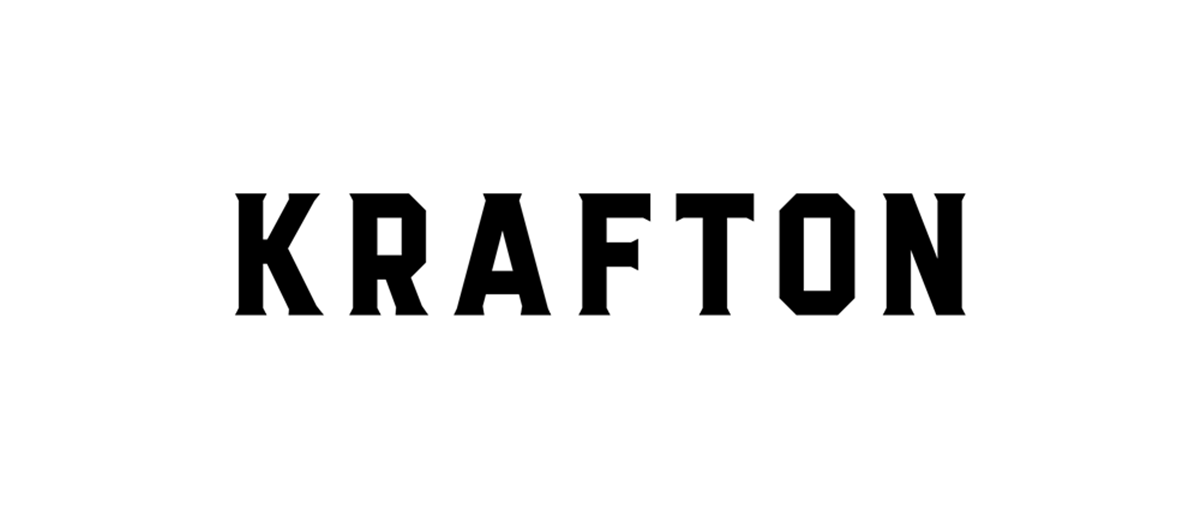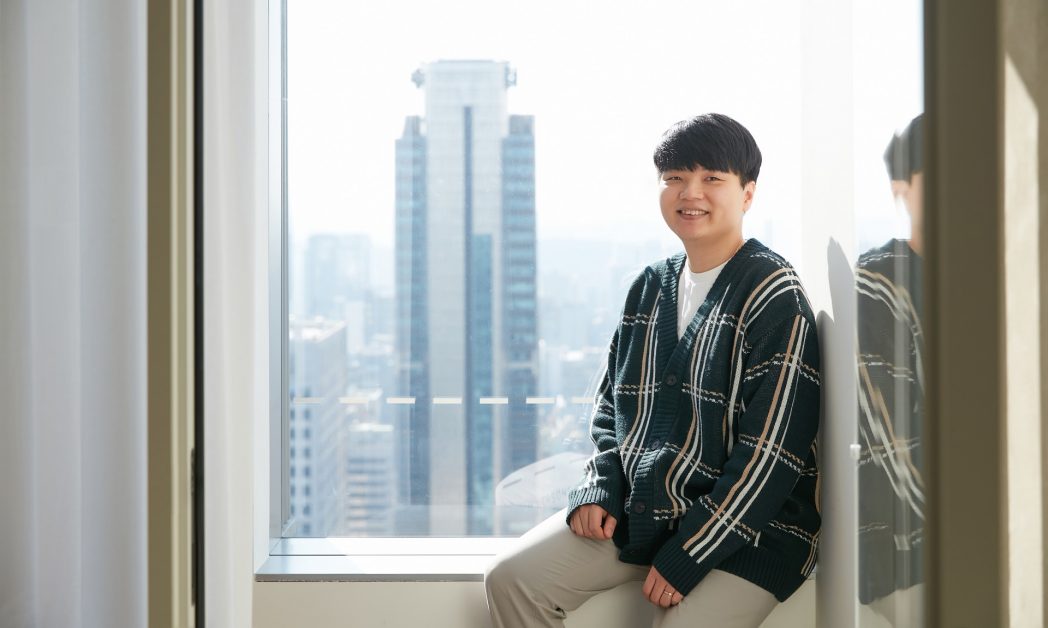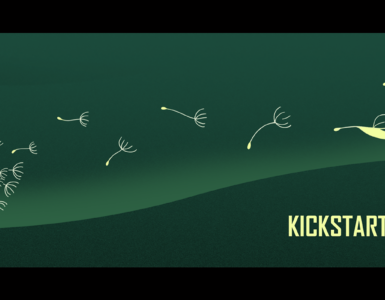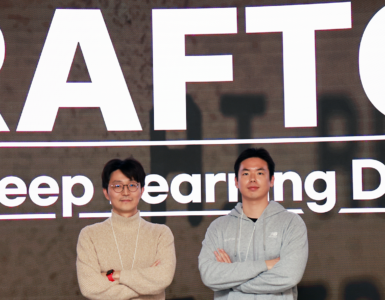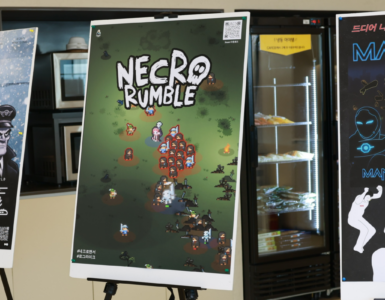Every game developer has a dream to produce their own games. However, like only a handful of people are privileged to live on doing only what they want, not so many developers can choose to make only the games that they’ve desired. To help the developers go for new challenges, KRAFTON is giving them opportunities to make games they want. Read onto the following KRFTON blogpost to learn more about Challengers Dept. from the interview of Sanghyun Ka.
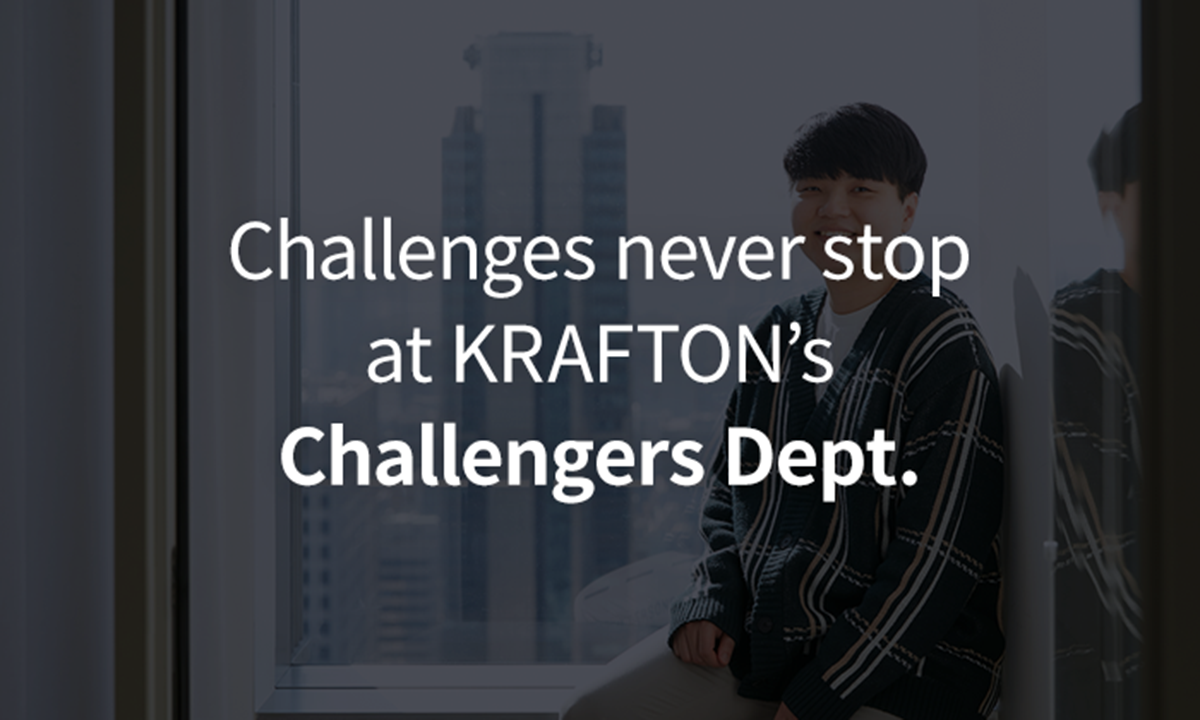
Nice to meet you! Could you please introduce yourself to our readers?
Hi. My name is Sanghyun Ka and I belong to Program Mgmt Cell of Challengers Dept. under Game Production & Media Expansion Division. As a former developer, I have had diverse experiences in making games ranging from game design, programming to production directing. More recently, I was a part of making a game called “Blue Archive” as the leader of program dept. / management dept.
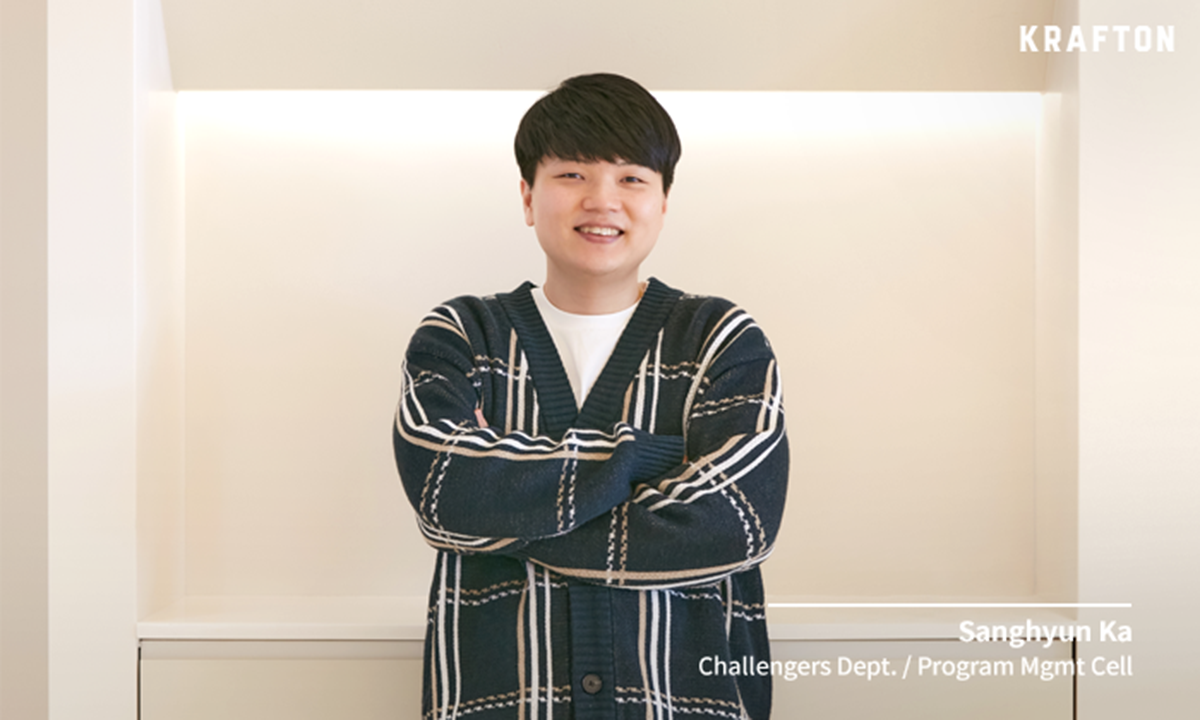
What kind of organization is Challengers Dept.? What are your duties?
To put it simply, our mission is to provide strategies and system/environment that help strengthen KRAFTON’s development capabilities and games portfolio. We also help proficient developers here get more opportunities within KRAFTON. At Challengers Dept., they can make a new challenge by making prototypes for the games they’ve dreamed of. In the process, they get feedbacks from experienced production leaders in game design, art, and tech sectors, which will be very precious nutriments for their growth. I’m running programs to help their challenges, tapping into my precious experiences as a developer.
Could you elaborate on those programs you mentioned?
Besides “Challengers Loop,” which one of the representative programs, we also have “Challengers Class” that support our developers to strengthen their job competencies. To be more specific, we try to aid the developers solve their difficulties, and arrange for meetings that help the developers find new opportunities in new projects under KRAFTON. We plan, operate, and develop all kinds of programs for our developers who seek for new challenges.
How does the “Challengers Loop” program operate? Pleases tell us in detail.
If you just say “try something new” without any further explanation, developers may feel like they are neglected. Therefore, we designed what we call the “5+1+1 rotation program” where developers set their own aims by themselves, and then plan and carry out accordingly. First, they work on the tasks for five weeks as they planned. Then, they have presentations with the materials they’ve prepared for in a week-long “Feedback Week.” Every member of the department takes part in the presentations where they share their experiences and ideas they had in the process. The last one week is called the “Iteration Week,” in which the developers set new tasks. They also set their respective goal whether to find a new project to join in or to try building a prototype for a new game. Feedbacks may vary according to the goals they set. Going around this loop, they keep working on their challenges.
The program doesn’t seem to be easy to follow. Some among the online job-seekers community described Challengers Dept. as a “paradise,” but this must be a misunderstanding.
Well, I’d say it’s half right and half wrong. Everyone in the game industry has a dream to make a game that they’ve longed for. But you’ll soon realize that it’s not an easy opportunity to get. I guess those who called Challengers Dept. as a paradise believed so since you can try whatever you want here. But you must not overlook that you must endure a painful time in the process. The 5+1+1 Loop is nothing to sneeze at.
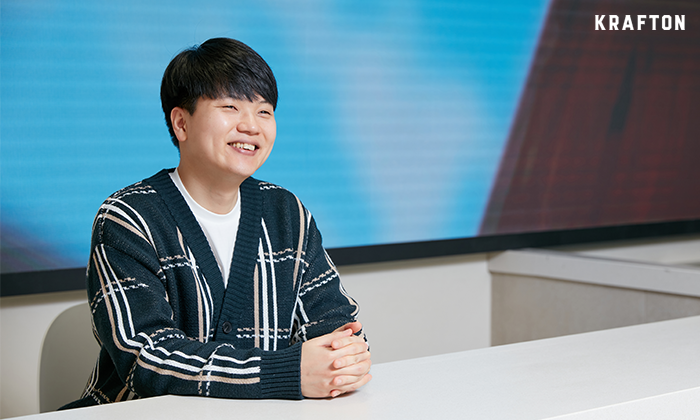
When do you feel that your work is most worthwhile?
I’m very proud of the junior developers in this program when they grow, making good results. It also makes me feel good to see them get better opportunities to work in projects that wanted through KRAFTON’s in-house personnel transfer.
It seems that the program is based on the company’s strong faith in the employees.
Many game development studios are project-oriented, but we try to put our people first. For many project-centric systems, it’s hard to make a bold decision when they face serious problems. They often end up wasting more time as they struggle to keep the project while replacing the employees. We believe in the importance of “Fast Fail” and “Fast Iteration.” For the developers, too, there’s nothing more valuable than time.
Challengers Dept. looks like a shelter for developers that helps them reorganize themselves until they are ready to go for a new challenge in a new project.
You’re right. Of course, some developers voluntarily join Challengers Dept. to make the games they really want. As I told you before, it’s a rare opportunity. They try to find it here. There also are some who apply for Challengers Dept. when they join KRAFTON in the first place. One of the extraordinary cases I remember is a senior developer who used to work as a full professor of software engineering at a four-year university in Seoul. He’s now with Challengers Dept., making his challenge to make a game by himself.
How do you motivate the developers in Challengers Dept.?
I think we cannot forcibly get the developers motivated. They try to make themselves. During the Feedback Week of the 5+1+1 Loop, they observe others’ work, encourage each other, and get themselves motivated. If it were not for this program in Challenges Dept., they won’t have a chance to watch what others have done before the game is completed. It’s a very valuable experience to learn from your colleagues. To interact with each other and to get themselves motivated together, that’s the key.
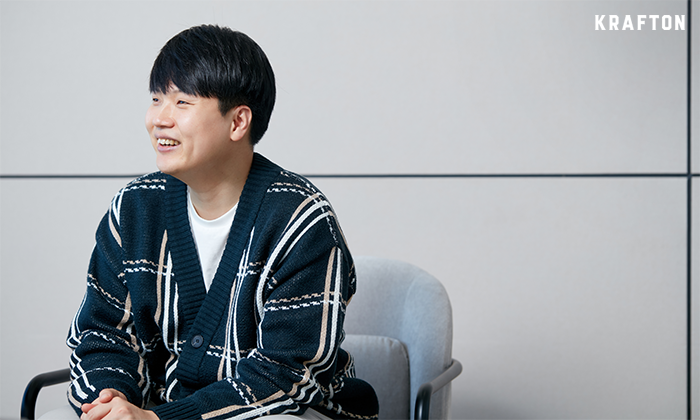
Every business organization expects and urges the employees to make results. Is this the same in Challengers Dept.?
We have a totally different system. We don’t “assess” any “results” here. We don’t set a certain deadline for the developers, either. We never tell them things like: “If you fail to join a project within two months, you must leave the company.” They can keep on making challenges as much as they want. Isn’t it so ideal?
It’s literally an infinite challenge. It seems that this system will be functional only when the company trusts the employees. When do you feel that KRAFTON has faith in its people?
I can see that KRAFTON seriously thinks about how to help the employees grow themselves. It constantly contemplates how to support the employees, listen to their voices, reflect them, and make changes. For instance, the 5+1+1 Loop was originally the 4+1+1 course. It was changed to the current 5+1+1 program after the developers suggested that four weeks are not enough to properly prepare for the presentations. What the employees and the company communicated with each other has been reflected to the program.
Is there anything you want to try out?
Keeping the faith in the company and accomplishing Challengers Dept.’s mission is the biggest challenge for me. I always try to come up with new ideas for Challengers Dept. There’s another program called “The Potential,” in which small dev teams make their games, run user tests to ultimately prove that it’s fun within a year. We’re trying to connect The Potential program to Challengers Loop. We seek for a potentiality from Challengers Loop that may advance to The Potential and support the developers in proving that their projects before the decision-makers.

You seem to have a lot of new plans in mind. To execute them, you’ll need more human resources. In which positions are you hiring?
We need program managers and technical writers. Technical writers document various technologies and make them as assets. They need to understand what those technologies mean first to put them into words. Therefore, those with previous experiences in game development are welcomed. Some might have felt frustrated to see that experiences from many projects end up only as personal knowhow, not the corporate asset. Those who have felt this are also welcomed. More importantly, we think the staffs of Challengers Dept. should think “us” first, rather than “I.” That’s one way of seeing things to enjoy working here.
What is the future that Challengers Dept. aims for?
I hope that Challengers Dept. become one of KRAFTON’s strengths that comes into your mind when you think of this company. Ultimately, it’s our goal to be an axis of KRAFTON’s unique development ecosystem. To this end, we must keep recruiting talents and keep on making challenges.
How would you describe Challengers Dept. in one sentence?
I’d like to put it this way. Challengers Dept. is a dream. Everything that you might have dreamed of while working in the game industry is here. Everything that needed to realize the ideals. That’s why I’d call it a dream.


